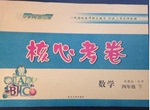题目内容
Most of us know about the Nobel Prize, especially the Nobel Peace Prize, but few of us know anything about the man who set them up. His name was Alfred Nobel. He was a great scientist and inventor himself. Besides, he had a big business. His business may surprise you. He made and sold explosives(炸药). His companies even made and sold weapons. Isn’t this something that surprises you? The man who made money from weapons should set up the Peace Prize?
Though Alfred Nobel had a lot of money from weapons, he hated war. He hoped that there would be no war in the world. He was one of the richest in Europe. When he died in 1896, he left behind him a lot of money and his famous will. According to his will, most of his money was placed in a fund(基金). He wanted the interest(利润) from the fund to be used as prizes every year. We know them as the Nobel Prizes. The Nobel Prizes are international. Alfred Nobel wanted the winners to be chosen for their work, not the country they came from.
Alfred Nobel had given his whole life to his studies and work and to the benefits of mankind. He made money all by his own efforts, but he left the world share his wealth. His inventions and wealth stay with the world for ever.
1.Alfred Nobel did the following EXCEPT ______________
A. choosing the winners of Nobel Prize
B. making and selling weapons
C. setting up the Nobel Prize
D. making and selling explosives
2.Nobel wanted to set up the Nobel Peace Prize because _____.
A. he made enough money
B. he hated war
C. he wanted to get more interest from the fund
D. he liked to live in a peaceful world
3.Nobel Prizes come from _____.
A. all Nobel’s money in the fund
B. all Nobel’s money in his company
C. all the interest from the fund
D. some of the interest in the fund
4.Nobel was a (an) _____ person in the world.
A. interesting B. unselfish C. kind-hearted D. richest
5.Which statement of the following is Right according to the passage?
A. Nobel set up his company to sell clothes.
B. Most of Nobel’s money was used for the world wars.
C. Nobel Prizes are only for some people from some special countries.
D. Nobel worked hard in his life and saved lots of money for the world to share.
1.A
2.B
3.C
4.B
5.D
【解析】
试题分析:文章主要讲述了诺贝尔奖的设立者诺贝尔的事迹。诺贝尔是一个伟大的科学家和发明家,他拥有自己的公司,主要制售炸药和武器。诺贝尔厌恶战争,他期望世界和平,在去世后,人们根据他的遗嘱设立了诺贝尔奖。
1. man who set them up. His name was Alfred Nobel. ...He made and sold explosives ...His companies even made and sold weapons.”可知,Alfred Nobel设立了诺贝尔奖,他有自己的公司,生产、售卖炸药,甚至武器。诺贝尔奖是诺贝尔去世后根据他的遗嘱设立的,A项错误,故选A。
2. hated war. He hoped that there would be no war in the world.”可知,诺贝尔讨厌战争,他立下遗嘱,把积蓄用于设立诺贝尔奖,故选B。
3. of his money was placed in a fund(基金). He wanted the interest(利润) from the fund to be used as prizes every year.”可知,诺贝尔的大部分积蓄都放在了一个基金里,所得的利息用于各项奖项,故选C。
4. was one of the richest in Europe.”可知,诺贝尔是当时欧洲最富有的人之一,排除D;根据最后一段“Alfred Nobel had given his whole life to his studies and work and to the benefits of mankind. ...he left the world share his wealth”可知,诺贝尔把一生都给了工作和研究以及人类的福祉,他甚至让全世界的人都有机会分享他的财富,说明他是一个大公无私的人,故选B。
5. made and sold explosives(炸药). His companies even made and sold weapons.”可知,诺贝尔建立的公司制作和销售炸药与武器,排除A;根据第二段“ he hated war... most of his money was placed in a fund(基金)”可知,诺贝尔讨厌战争,他不可能把钱用在战争上。诺贝尔立下遗嘱把积蓄用于奖励对人类有贡献的人,排除B;根据第二段“Alfred Nobel wanted the winners to be chosen for their work, not the country they came from.”可知,每个人都有可能因自己所从事的工作而荣获诺贝尔奖,排除C;故选D。
考点:人物类短文阅读

 小学同步三练核心密卷系列答案
小学同步三练核心密卷系列答案